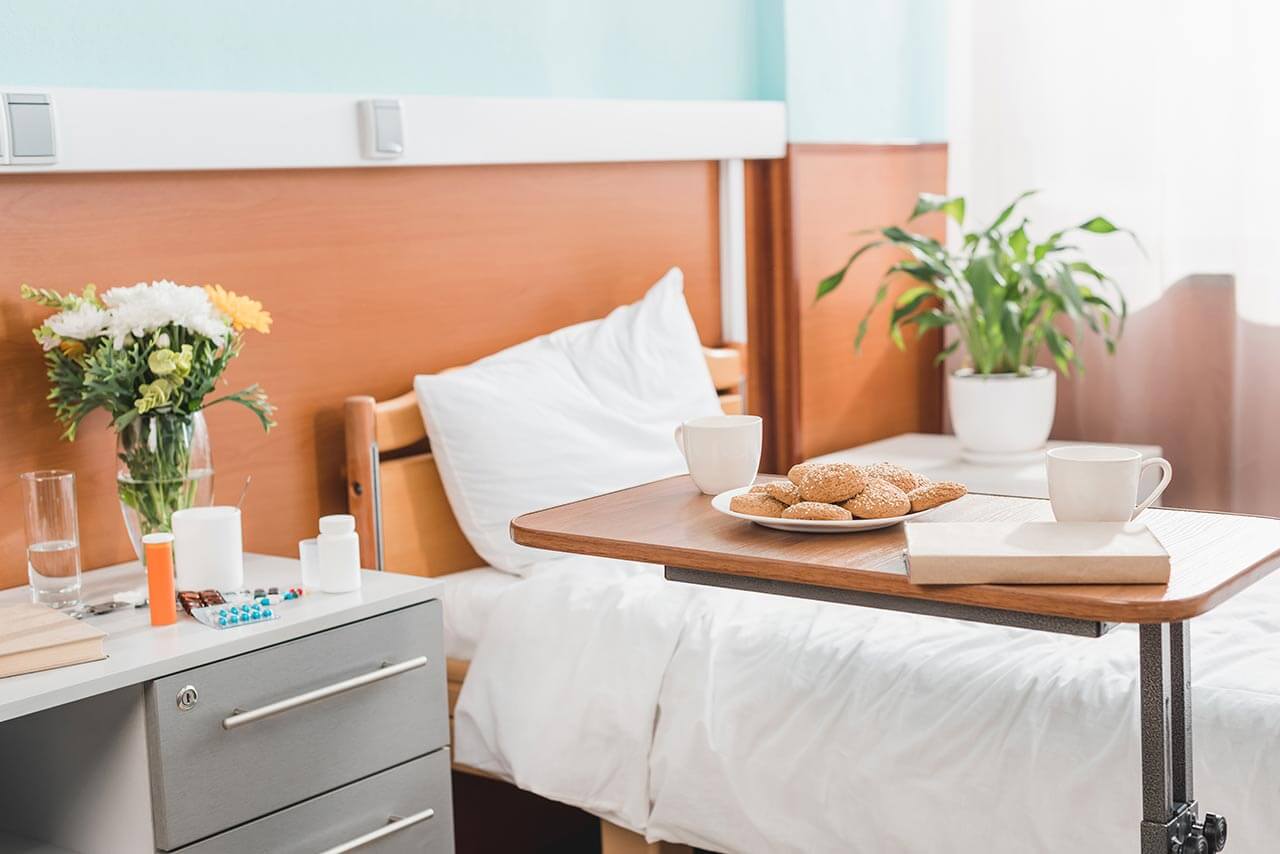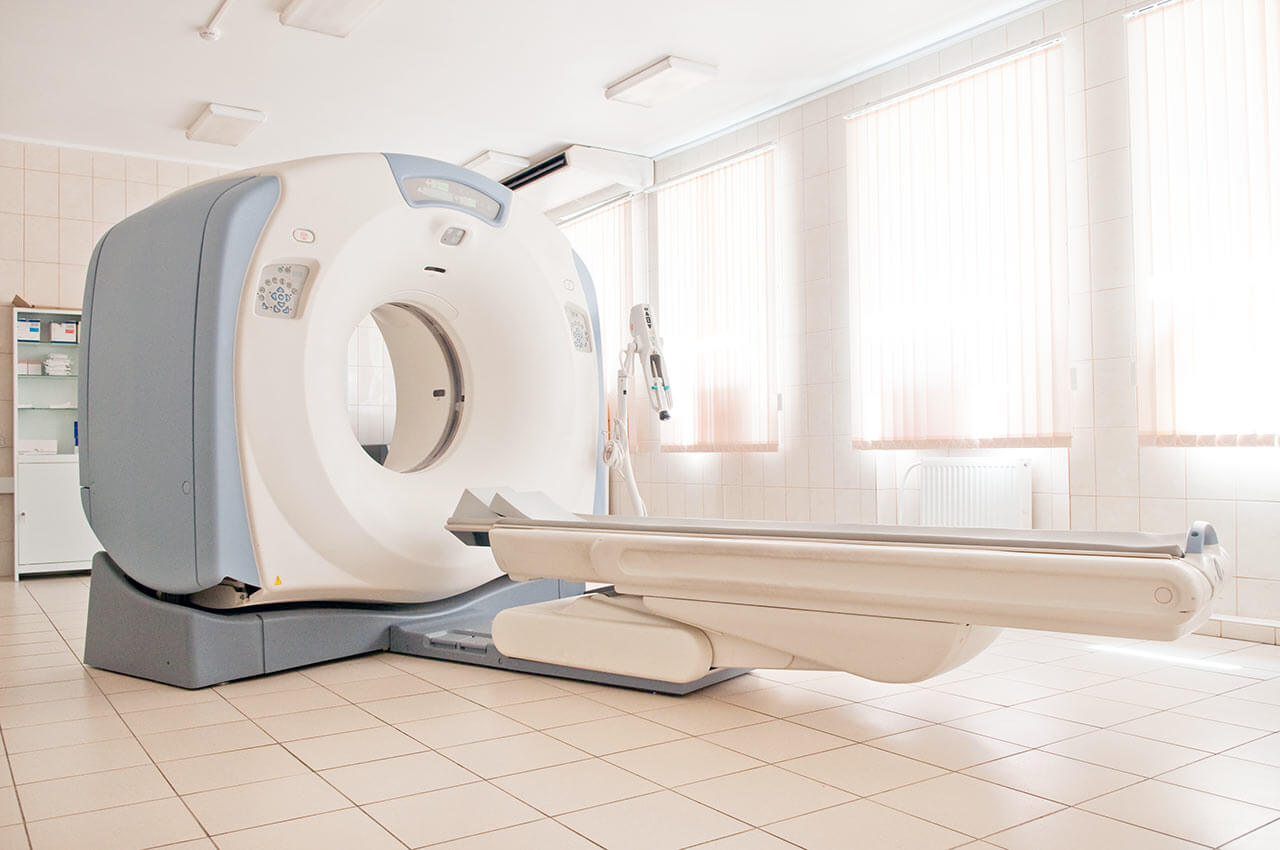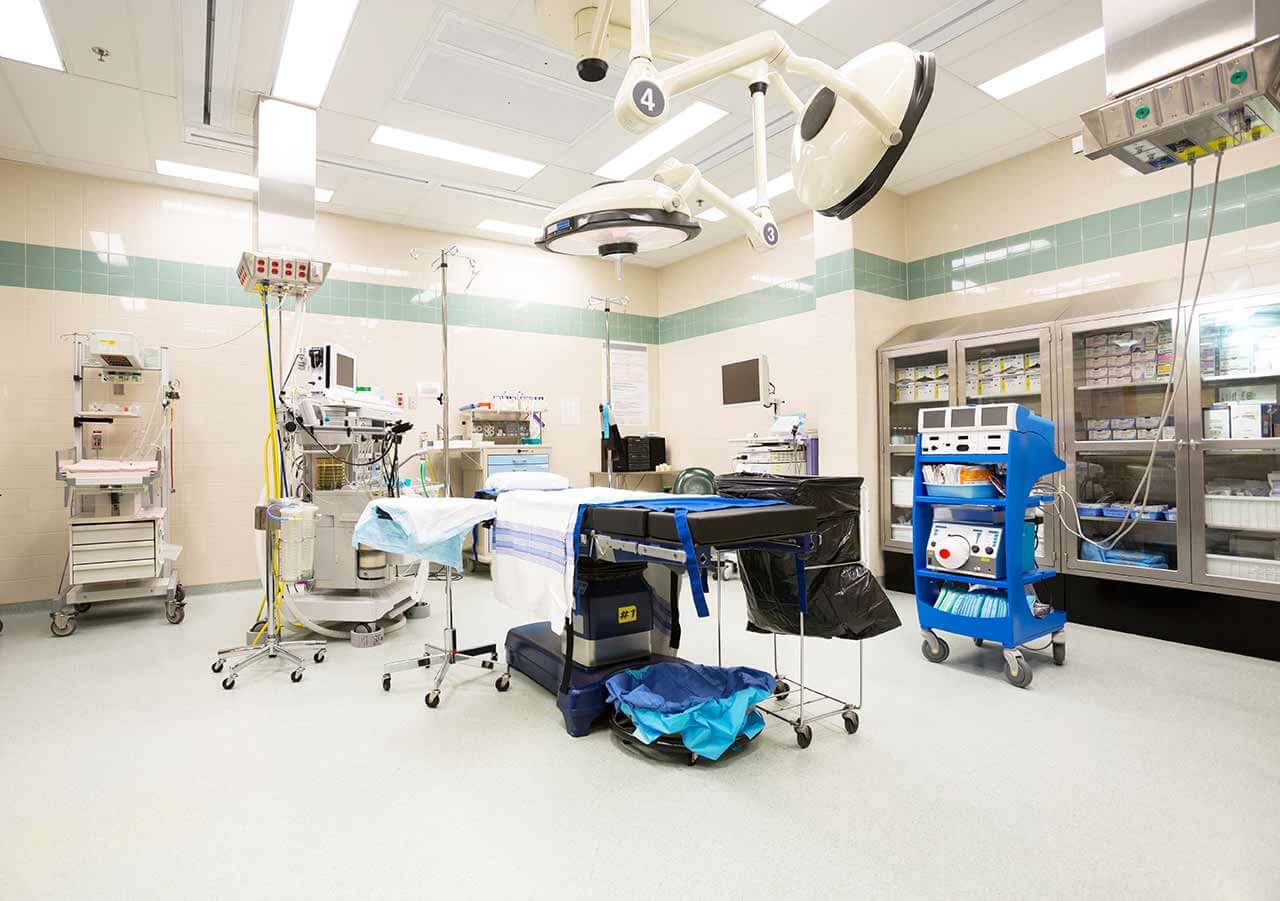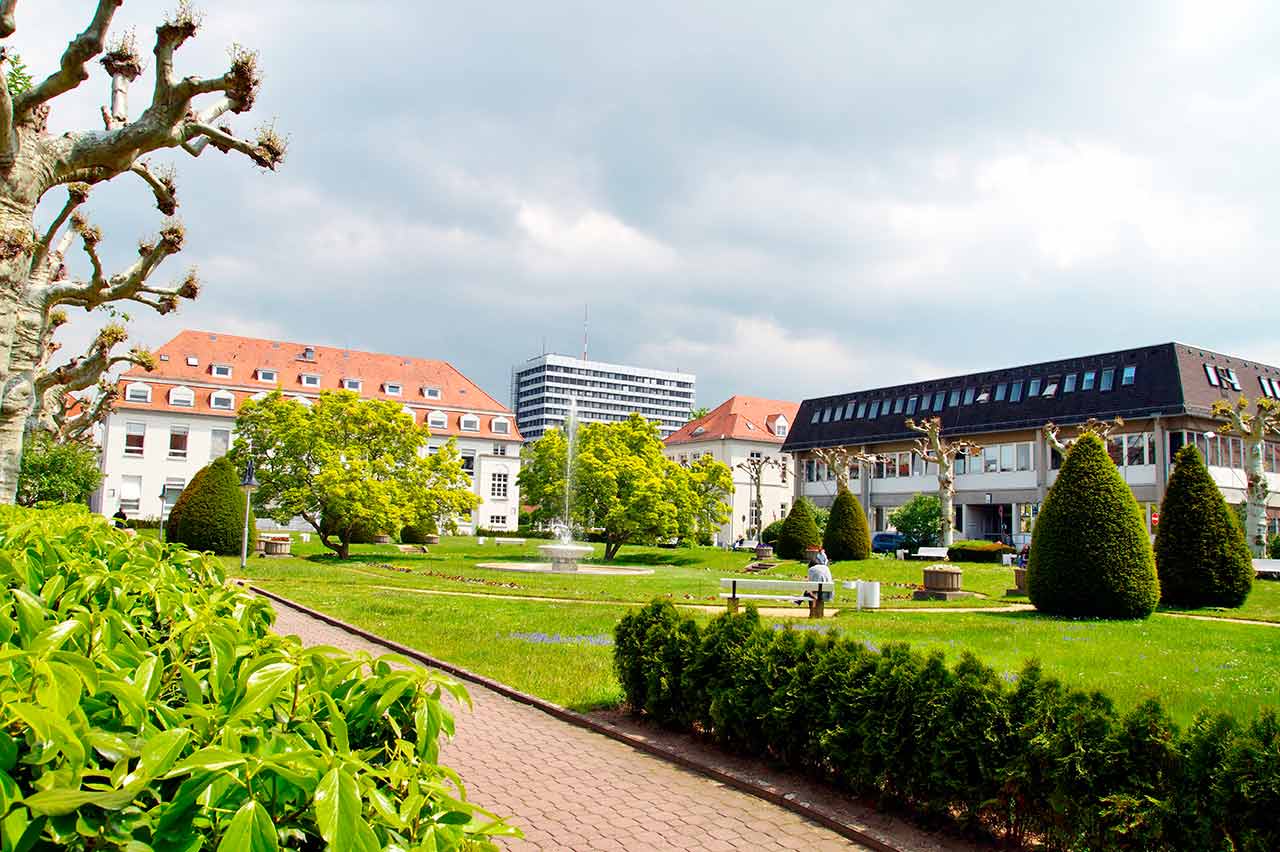
The program includes:
- Initial presentation in the clinic
- clinical history taking
- review of medical records
- physical examination
- laboratory tests:
- complete blood count
- general urine analysis
- biochemical analysis of blood
- inflammation indicators (CRP, ESR)
- TSH, fT3, fT4
- L-Dopa-Test
- indicators blood coagulation
- neurological examination
- CT/MRI scan of the head
- neuropsychological tests (on indications):
- ENMG (electroneuromyography)
- EEG (electroencephalography)
- SEPs (somatosensory evoked potentials)
- VEPs (visually evoked potentials)
- BAEP tests (brainstem auditory evoked potential)
- stationary EEG monitoring
- spinal tap
- symptomatic treatment
- control examinations
- the cost of essential medicines and materials
- nursing services
- full hospital accommodation
- developing of further guidance
Required documents
- Medical records
- MRI/CT scan (if available)
Service
You may also book:
 BookingHealth Price from:
BookingHealth Price from:
About the department
The Department of Neurology at the University Hospital Mainz offers the diagnostics and treatment of all neurological diseases at the very latest scientific level. The department is headed by Prof. Dr. med. Frauke Zipp.
The department employs highly qualified specialists, who are focused on an individual approach to each patient in order to provide optimal medical care. Many neurological disorders are treated in the specialized certified centers that operate on the basis of the department, for example, the Stroke Unit, the Epilepsy Center.
The diagnostic options of the department include:
- Doppler ultrasound
- Continuous wave Doppler ultrasound of the cervical vessels
- Transcranial Doppler ultrasound
- Duplex sonography
- Electroencephalography (EEG)
- Non-invasive EEG video monitoring
- Electromyography (EMG)
- Nerve conduction velocity test
- Electronystagmography
- Registration of evoked potentials (VEP, AVP, SEP, MEP)
- Registration of brain stem reflexes
- Orthoptic studies
- Neurophysiological studies
- Other diagnostic services
The service range of the department includes:
- Diagnostics and treatment of acute stroke (within the Stroke Unit), subsequent care and assessment of risk factors using ultrasound diagnostics of cerebral vessels
- Conventional and differential diagnostics of inflammatory diseases of the central nervous system, in particular, multiple sclerosis, counseling on the treatment of this diseases
- Diagnostics and treatment of epileptic seizures (within the specialized outpatient clinic), inpatient video EEG monitoring
- Diagnostics and treatment of motor disorders (botulinum toxin therapy)
- Parkinson's disease
- Multisystem atrophy
- Focal dystonia
- Diagnostics and treatment of neuromuscular diseases
- Amyotrophic lateral sclerosis
- Myopathy
- Myotonia
- Myasthenia
- Diagnostics and treatment of benign and malignant tumors of the nervous system (within the interdisciplinary Neurological and Neurosurgical, Neuro-Oncological Outpatient Clinic)
- Diagnostics and treatment of neuropathic pain, complex regional pain syndrome
- Diagnostics and treatment of acute, chronic dizziness, eye movement disorders
- Diagnostics and treatment of other neurological diseases
Curriculum vitae
- Study of Medicine in Germany, USA, Canada and England.
Professional Experience
- 1989 - 1992 Neurology, University Hospital Frankfurt.
- 1993 - 1995 Postdoctoral Fellow, Department of Neuroimmunology, Max Planck Institute, Martinsried (Prof. H. Wekerle and Prof. R. Hohlfeld).
- 1995 - 1998 Scholarship and Habilitation (Neurology), Department of Neurology at the University of Tübingen (Prof. J. Dichgans).
- 1996 Visiting Scientist, National Institute of Health, Division of Neuroimmunology, Bethesda, USA (Prof. H. Mc Farland).
- 1998 - 2002 Senior Physician, Department of Neurology, Charité, Berlin.
- 2002 - 2006 C3 Professor, Head of the Institute of Neuroimmunology, Charité, Berlin.
- 2006 - 2009 W3 Professor at the University Hospital Charité, Berlin.
- Since 2009, W3 Professor and Head of the Department of Neurology at the University Hospital Mainz.
- Since 2012 Spokesperson/Co-Spokesperson of the Transregio Collaborative Research Center on Multiple Sclerosis (CRC TR 128; DFG).
- Since 2013 Executive Board Member of the Competence Network for Multiple Sclerosis (KKNMS, Federal Ministry of Research and Education, BMBF).
- Since 2016 Council Member of the European Committee for Treatment and Research in Multiple Sclerosis (ECTRIMS).
Awards and Honors
- 1983 Scholarship of the German Foundation Studienstiftung des Deutschen Volkes.
- 1998 Langheinrich Prize for Multiple Sclerosis Research.
- 1999 Research Award of the Academy of Clinical Diagnostics.
- 2003 Nils Ilja Richter Prize.
- 2005 Pette Prize from the German Society of Neurology.
- 2011 Alexander Karl Prize.
- 2011 Member of the German National Academy of Sciences Leopoldina.
- 2014 President of the International Society of Neuroimmunology.
Photo of the doctor: (c) Universitätsmedizin der Johannes Gutenberg-Universität Mainz
About hospital
The University Hospital Mainz is one of the best maximum care medical facilities in Germany and an internationally recognized scientific center. There are more than 60 departments and institutes, which represent all fields of modern medicine. The hospital serves more than 68,000 inpatients and more than 273,000 outpatients annually, which testifies to the excellent reputation of this medical institution.
The key to the successful clinical practice is also a highly qualified medical staff, which consists of 7.800 employees from various fields. The doctors of the hospital are convinced that each clinical case requires an individual approach, therefore, they devote much time to consultations and communication with patients. The main goal of all hospital employees is to provide an optimal medical care based on the use of the state-of-art diagnostic and therapeutic measures, as well as the introduction of the latest scientific achievements into the medical practice.
The best interns and assistant physicians are trained here. The world-famous leading physicians of the hospital share their long experience and professional skills. Naturally, an integral part of the university hospital work is research, thanks to which many innovative possibilities in the field of diagnostics and therapy have been developed.
Photo: (c) depositphotos
Accommodation in hospital
Patients rooms
The patients of the University Hospital Mainz live in bright, spacious and comfortable rooms. The patient rooms are equipped with modern electronically adjustable beds, which at the touch of a button automatically assume a specified position. Also, there is a TV and a telephone in the patient rooms. To use them, it is necessary to get a prepaid card (in vending machines at the entrance to the hospital). The use of a TV is free, but the patient will need headphones. Telephone calls are made for a fixed fee, which will be withdrawn from the prepaid card at discharge from the hospital. Also, each patient room is equipped with an ensuite bathroom with shower, washbasin and toilet.
Meals and Menus
The patients of the hospital are offered a tasty and balanced three meals a day: breakfast, lunch and dinner. The menu also includes vegetarian and dietary dishes. In addition, for both patients and their visitors there are available cafeterias and bakeries, where one can buy baked goods, snacks, hot and cold drinks.
Further details
Standard rooms include:





